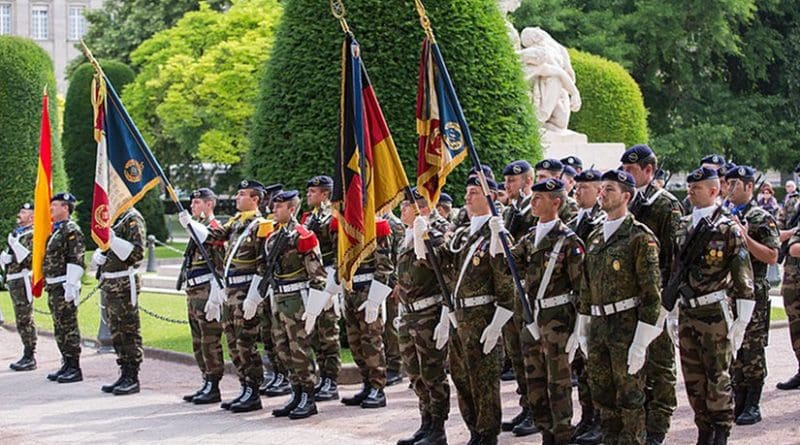European Commission Debates Future Of EU Defense
Feeding into the discussion on the future direction of the EU at 27, the Commission Wednesdayday held an orientation debate on the future of European defence.
A stronger Europe when it comes to security and defence matters has been a priority for the Juncker Commission since it took office. President Juncker announced the creation of a European Defence Fund in his 2016 State of the Union address, saying: “Europe can no longer afford to piggy-back on the military might of others. (…) For European defence to be strong, the European defence industry needs to innovate.” With a worsening security situation in Europe’s neighbourhood and a strong economic case for greater cooperation on defence spending amongst EU countries, the Commission believes now is the time to make strides towards a Security and Defence Union.
High Representative Vice-President Federica Mogherini said: “Security and defence are priorities for the European Union because they are priorities for all our citizens. Since last year, we are stepping up our European defence to be more and more effective as a security provider within and beyond our borders, investing more resources, building cooperation among member states and taking forward a closer cooperation with NATO. The world is changing rapidly around us and we have to tackle new challenges every day: as the European Union, we have taken the responsibility to address these challenges.”
Vice-President for Jobs, Growth, Investment and Competitiveness Jyrki Katainen added: “Strengthening European security and defence requires using the available defence budgets more efficiently. Investment in defence capabilities remains in the hands of the Member States, and the EU budget cannot replace Member States’ on defence. However, there is an overwhelming economic and industrial case for greater cooperation, for example in defence research and procurement. As pressure on national budgets remains high, we need more efficient defence spending and a better use of defence capabilities.”
Wednesday’s orientation debate will help guide the Commission’s work in the weeks to come. Ahead of the Prague high-level European conference on defence and security, on 7 June, the Commission will launch the European Defence Fund announced in the November 2016 European Defence Action Plan. In parallel, it will present a longer-term reflection paper setting out possible scenarios for the future in the area of European defence. This forms part of the discussion on the future of the EU at 27 launched with the Commission’s White Paper on the Future of Europe on 1 March 2017.
There is a strong case for greater cooperation on security and defence in the EU. The threats that the EU faces do not respect national borders. Their scale is increasing. They are best tackled by working together.
A strong European defence requires a strong European defence industry. As Member States begin to increase their defence budgets, the EU can help them to spend these funds more efficiently. The lack of cooperation between Member States in the field of defence and security is estimated to cost annually between €25 billion and €100 billion. 80% of procurement and more than 90% of Research and Technology are run on a national basis Up to 30% of annual defence expenditures could be saved through pooling of procurement (see Factsheet on the case for greater EU cooperation on security and defence).

